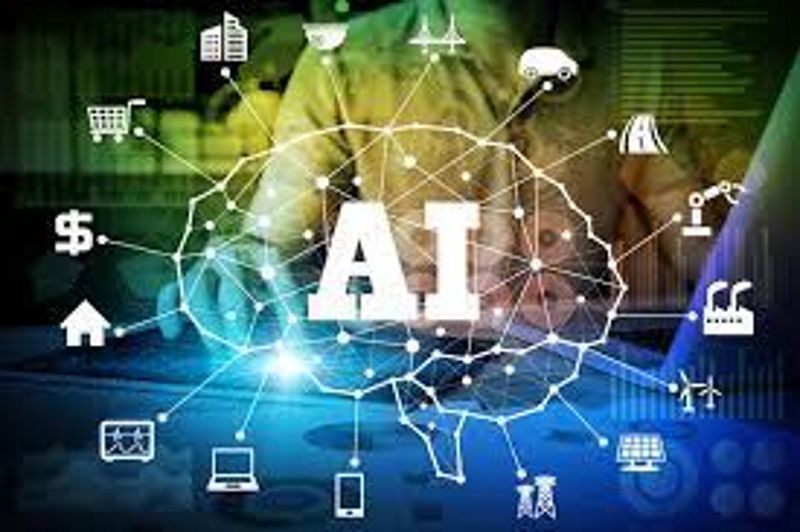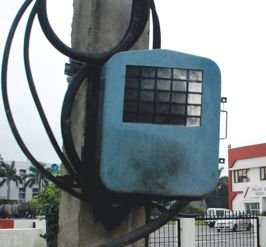
Photo for representational purpose only. - File photo
Sharad S Chauhan
DGP and MD, Punjab Police Housing Corporation
THE TRIBUNE DEBATE: Economic implications of artificial intelligence
AT the World Economic Forum in Davos (Switzerland) this week, participants discussed the potentially transformative impact of artificial intelligence (AI) on inclusive growth through intersections with technologies like 5/6G, quantum computing and biotechnology.
AI’s rapid evolution is outpacing regulations, with few AI applications falling under existing rules. Enhanced AI literacy is imperative to ensure financial stability.
The content generated by AI platforms has permeated every sphere of life, right from facial recognition on smartphones to stock market algorithms and self-driving cars. It has sparked a debate on the impact of AI in the realm of social sciences and AI’s influence on individuals, institutions, political systems, economies and the overall security of societies and states.
While AI promises efficiency and economic growth, it remains a double-edged sword, with the potential to destabilise national policies, disrupt financial systems and erode institutional trust.
A McKinsey Global Institute study projects a potential global job loss of 800 million to automation by 2030, with India’s service sector particularly vulnerable, while AI could significantly transform 20-25 per cent of EU jobs by 2030, necessitating reskilling. Over 120 million global workers may need retraining due to AI’s impact in the next three years (IBM, 2022). This raises concerns over the widening wealth gap — Oxfam estimates that India’s richest 1 per cent own 57 per cent of the country’s wealth. This trend is likely to be exacerbated by AI-driven job losses, affecting lower-income groups. This could intensify challenges in providing basic necessities like healthcare and education, impacting vulnerable communities. At the national level, while promising efficiency, AI risks shrinking the tax base, leading the IMF to estimate a potential 9 per cent reduction in government revenue for advanced economies by 2030. This entails a tightrope walk for nations heavily reliant on tax revenue for public services and infrastructure. Furthermore, the World Bank warns that increased job displacement in developing countries could strain social safety nets, with 40 per cent of the jobs facing high automation risk, potentially amplifying fiscal instability and increasing social inequalities.
AI-driven algorithmic bias poses societal risks, particularly in education and criminal justice, with a 2023 Pew Research survey highlighting that 72 per cent of the Americans fear unfair AI use. In finance, a 2023 study by the Federal Reserve Bank of Chicago reveals biases in lending and investments. Lack of transparency deepens trust deficit, limiting recourse for those harmed by biased algorithms, as emphasised in a 2023 report by the Algorithm Justice League, calling for mandatory explainability and human oversight in high-risk AI applications. As India approaches its goal of becoming the world’s third-largest economy, there are growing concerns about fairness, transparency, cybercrime, job losses and financial resources, echoing global apprehensions.
AI’s advanced capabilities will be exploited by cybercriminals against individuals, corporates and institutions for malicious activities, including deepfake creation, enhanced password-cracking, automated hacking, supply chain compromise, business email compromise, advanced persistent threats, ransomware attacks, fraudulent transactions, payment gateway fraud, attacks with AI-powered botnets and intellectual property theft. These AI-assisted threats challenge existing cybersecurity measures.
Thus, the economic implications of AI would be complex and far-reaching. If regarded as a ‘country’, cybercrime — which inflicted damages totalling $6 trillion globally in 2021 — would be the world’s third-largest economy after the US and China, surpassing the GDP of many countries with a projected increase to $10.5 trillion by 2025. In the US, the FBI’s Internet Crime Complaint Centre documented losses exceeding $10.3 billion in 2022 from reported cybercrime incidents, implying that actual losses could be higher.
The Centre for Strategic and International Studies estimated that cybercrime costs constitute approximately 0.8 per cent of the global GDP, underscoring its significant impact on global economy. In some developing countries, cybercrime costs could escalate to as much as 3 per cent of the GDP, emphasising the diverse and substantial economic consequences globally.
India lost Rs 10,319 crore to reported cyber heists from April 2021 to December 2023; of that, Rs 1,127 crore belonging to 4.5 lakh victims was blocked due to prompt government intervention. But only 9-10 per cent of the money was returned to victims, according to the India Cyber Crime Coordination Centre. Indian businesses are estimated to lose billions annually, a figure projected to double by 2025, according to Cybersecurity Ventures. AI-driven cyberattacks compound this risk, posing a severe danger to critical infrastructure and financial systems. Financial institutions face potential breaches, with the Ponemon Institute reporting an average cost of $5.4 million for data breaches, a figure that could escalate significantly with successful AI-powered attacks. To complicate matters, the estimated costs of cybercrime in the cybersecurity market were forecast to continuously increase between 2023 and 2028 to reach $5.7 trillion. In August 2023, the UN reported that 2,20,000 people in Southeast Asia were enticed into involvement in online scams due to limited job opportunities. Technical expertise, coupled with reduced employment, may escalate the problem particularly in South Asia, with serious implications for India.
As AI-powered systems become more sophisticated, so too do the threats posed by non-state actors. AI-driven cyberattacks can exploit gaps in critical infrastructure, disrupt financial systems and steal sensitive data. A 2023 study highlighted the risk of chatbots mass-producing terrorist propaganda, offering step-by-step instructions on the production of explosives.
AI’s rapid evolution is outpacing regulations, with few current AI applications falling under existing rules. To ensure financial stability with transparent regulations, fortified cybersecurity and modernised social safety nets, enhanced AI literacy and human-centred development are imperative. Collaborative efforts are crucial for unlocking AI’s potential for the benefit of humankind.
Join Whatsapp Channel of The Tribune for latest updates.




























